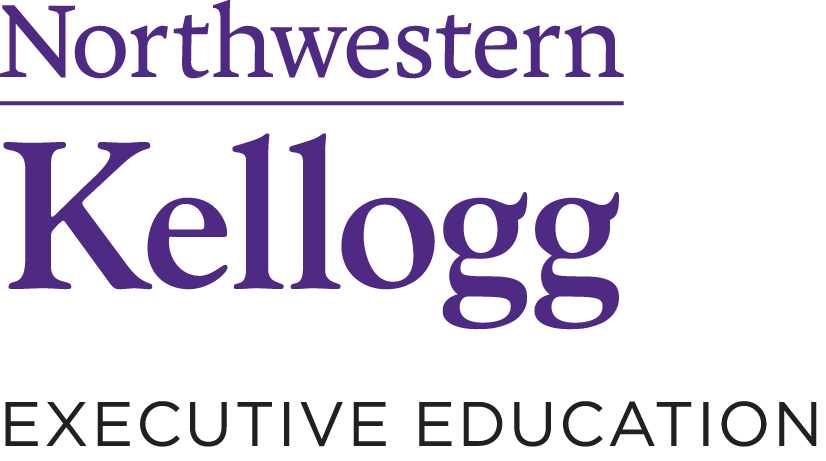- Leadership
Empowering the Family Enterprise
The Kellogg Center for Family Enterprise has a mission to support and sustain family businesses – the bedrock of the global economy
An aspect of business schools that is frequently overlooked is their specialist centres of expertise. Although the thinking is now changing, business schools have for too long promoted themselves as being great all-rounders, with strength in-depth at every turn. Whether it be marketing, operations, bond-pricing, accounting, sustainability or leadership they will have an expert on the topic. While many schools, and certainly the larger ones may well have experts across the range of main topic areas, inevitably most have areas where they have particular strength, with real depth in faculty skill and resources.
One short-cut to seeing where these specializations lie is in identifying what academic centres the business school has. These centres are the result of additional investment and resource focus. Admittedly plenty such centres may only indicate sufficient resource to fund a professor and their assistant and little more, but others can be significant, incorporating broad research activities, co-ordinating faculty expertise from different departments but focused on a unifying topic, outreach to relevant business sectors and extensive teaching initiatives.
The Kellogg Center for Family Enterprise (KCFE) at the Kellogg School of Management at Northwestern University is certainly one of the latter. KCFE has been working with family businesses for 20 years with a mission of sustaining enterprising families through a multi-pronged approach of education programs, research and community engagement, while advancing the family enterprise discipline as an academic field of study. The center was established by Professor John L Ward and Lloyd Shefsky. Ward stepped down from his leadership role there two years ago. Professor Jennifer Pendergast, a one-time McKinsey consultant turned academic specialising in the family enterprise, took the reins as Executive Director of KCFE and the inaugural John L. Ward Clinical Professor of Family Enterprise chair in April, 2019.
Pendergast formerly oversaw the US Family Business Advisory practice at Egon Zehnder and has consulted with family-owned enterprises for more than 20 years. Her new role, located on the Kellogg campus at Northwestern University, has an international reach.
The issues families struggle with in managing and passing on their businesses demonstrate clear similarities, regardless of where the family and business are headquartered. While specific regulations around governance and certain inheritance issues may vary from jurisdiction to jurisdiction, recurring themes are all experienced by family businesses around the globe: planning the succession process, enabling younger generations to gain experience and traction in the industry before they take on responsibility for the whole business, and fostering innovation without losing momentum or purpose.
Accordingly, the KCFE studies and works with family businesses internationally. For example, it granted its annual award this year for Family Enterprise Leadership to the Chinese family firm Lee Kum Kee, best known for its Black Oyster Sauces. Puig, the third-generation fashion and fragrance business based in Barcelona, Spain, is another previous winner. As Pendergast points out, many of the world’s largest businesses are family enterprises — from the $485bn annual revenue of Wal-Mart, the $288bn of Volkswagen or the $69bn of the Arcelor Mittal steel business. The combination of recognized industry leaders as well as mid-sized family enterprises constitute a significant part of the global economy.
Until recently, family businesses have not been given the attention they warrant, as they often purposely operate under the radar screen, avoiding the attention and scrutiny faced by their publicly traded counterparts. Indeed they are significantly different from publicly traded corporations (though, of course, some of those are family businesses, too, just to complicate the picture), with a focus on long-investment time horizons; commitment to a multi-stakeholder approach that values shareholders, community and employees and the idiosyncrasies of management selection all operating ways very different from those business schools traditionally promote.
However, the times they are a-changin’, and we are seeing large corporations starting to take an in-depth interest in many long-held attributes of family businesses. They most obvious are thinking around purpose, community and business sustainability. For evidence of this trend, witness the attention paid to BlackRock Chairman and CEO Larry Fink’s call to action for the companies owned by his fund.
This attention is bringing family businesses and their associated centres at business schools into more contact with the non-family business world than has previously been the case. This outside interest in them is no doubt welcome, but it is also clear that for most family businesses and related business-school centres the focus remains determinedly on the enduring challenges that these organizations have to tussle with from day-to-day and generation-to-generation as well as leveraging the strengths they can bring to bear.
That said, there is already plenty of content on the KCFE site (for more information, see www.KCFE.net) that, while crafted for family businesses, can be easily accessed and benefitted from by those in non-family enterprises, too.
This short video on how organizations should focus their culture on being one of change as much as tradition clearly has application across many SMEs and a few MNEs, too:
Equally, as Justin Craig, a faculty member at the Center writes in this article — and notes in his closing remarks — the decision-making process that works for family enterprises can be adapted to the wider business world to help attract and retain talent, a theme that will resonate across many a publicly owned corporation.
The Kellogg School of Management at Northwestern University is recognized globally as a pioneer in general management education that offers innovative academic opportunities for today’s leading thinkers
ARTICLES YOU MIGHT LIKE
RESEARCH
Why organizational resilience requires adaptive leadership particularly in times of crisis
DEVELOPING LEADERS QUARTERLY MAGAZINE AND WEEKLY BRIEFING EMAILS


































